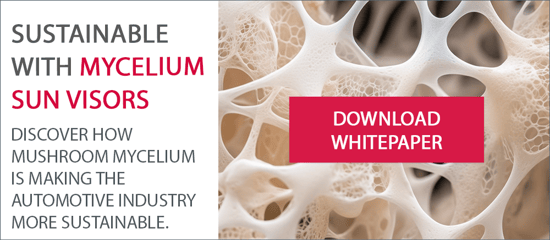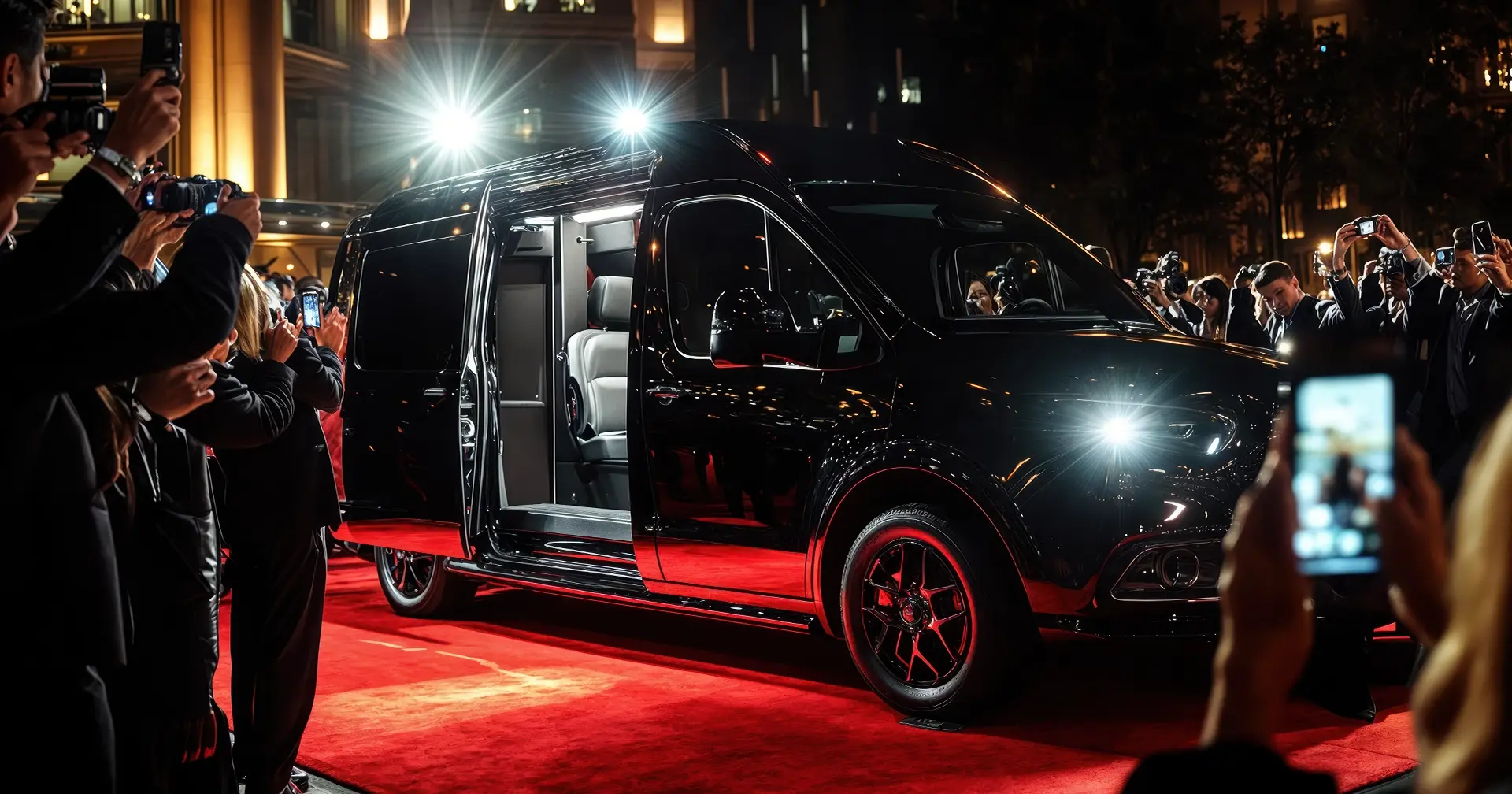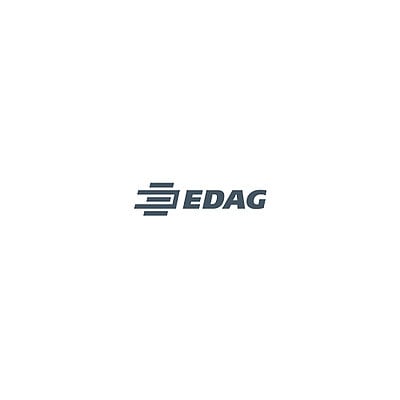The automotive industry is facing one of the greatest challenges of our time: reducing CO₂ emissions and minimizing the consumption of resources. At the same time, there is growing pressure to use sustainable materials that are both functional and economically viable. EDAG is setting a strong example for sustainable innovation with the world's first Mycel sun visor. But what makes this new material so special, and what opportunities does it offer for the automotive industry?
Mycelium as an alternative to conventional materials
Mycelium, the root system of fungi, has impressive properties: it is light, stable, biodegradable and can be cultivated without environmentally harmful chemicals. So far, it has mainly been used in packaging and furniture - now it is finding its way into the automotive industry.
The advantages of mycelium in vehicle construction are manifold: it only requires organic waste as a source of nutrients and grows into a stable, moldable structure within a few days. Compared to conventional petroleum-based plastics, Mycel has a significantly better environmental footprint. The reduction of CO₂ emissions in the production phase helps to significantly improve the overall environmental balance of a vehicle.
Why a sun visor?
This component was chosen deliberately: it offered the ideal conditions for a sustainable alternative. The combination of mycelium and a cover made from bio-based cactus leather provides an environmentally friendly, functional and visually appealing solution.
In addition to the ecological benefits, the Mycel sun visor also offers technological and economic advantages. The production process is less energy-intensive than that of conventional plastic parts. In addition, the production of mycelium-based components does not require any special high-temperature procedures or complex chemical processes - a decisive advantage in terms of industrial scaling.

Sustainability meets functionality
The Mycel sun visor offers considerable advantages over conventional products:
- Lightweight construction: 17 % lighter than conventional components
- Compostability: biodegradable at the end of life
- CO₂ reduction: no petroleum-based materials
- Safety & comfort: Soft feel and high impact absorption
In addition, Mycel can take on a variety of designs and shapes, which expands the design scope for car manufacturers. The natural aesthetics of the material also enable a high-quality look and a pleasant feel - a factor that should not be underestimated for vehicle interiors.
A look into the future
The development of the Mycel sun visor is just the beginning. The potential extends far beyond the vehicle interior. Could we perhaps even grow entire car components from sustainable materials in the future?
Another exciting field of application for mycelium in the automotive industry could be interior trim or insulation . The combination of biodegradability, low weight and high stability makes the material a real game changer. At the same time, the use of fungal mycelium as a basis for vehicle parts could reduce dependence on fossil raw materials and open up new avenues for a circular economy in the mobility industry.
Learn more now
If you would like to find out more about the use of bio-based materials such as mycelium in vehicle interiors and their potential for sustainable lightweight construction concepts, Stefan Caba, Head of the Sustainable Vehicle Development innovation field, will be happy to provide you with individual advice.
Curious? In the white paper, we go into even more detail - including technical insights into manufacturing and the prospects for series production. Download now!






